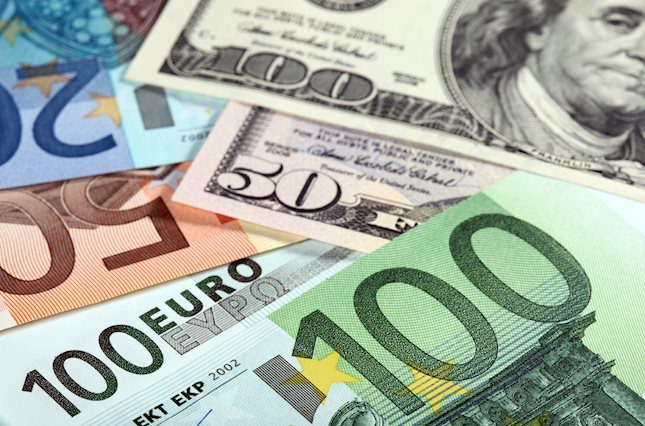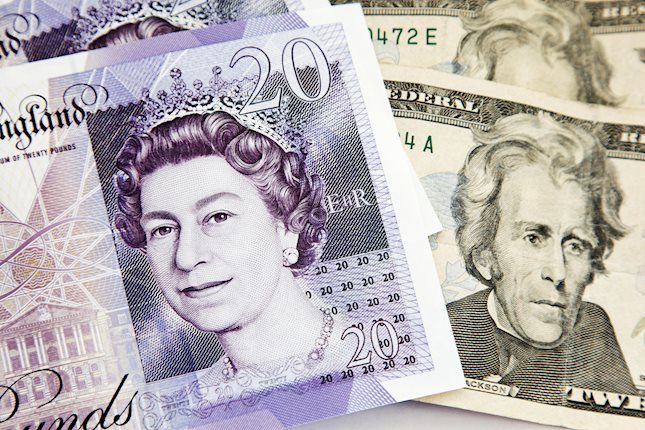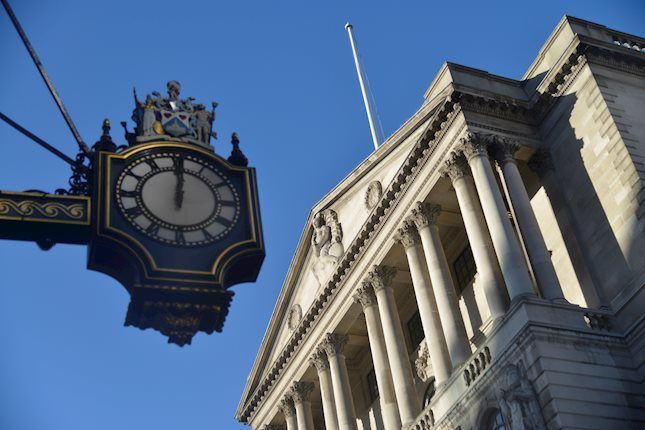- Pound Sterling finds some support after a fresh four-day low as room remains open for further policy-tightening by the BoE.
- A slowdown in progress in achieving 2% inflation has escalated hawkish BoE bets.
- The market mood remains risk-off amid increasing Israel-Hamas tensions.
The Pound Sterling (GBP) finds a cushion but the broader outlook remains vulnerable due to persistent inflation fears. The GBP/USD pair struggles for traction as the UK Consumer Price Index (CPI) report for September released on Wednesday showed inflation remains stubborn due to higher Oil prices, services inflation, and strong wage growth.
Inflation in the UK is the highest among G7 economies. The decline in inflation towards the 2% target has lost steam, keeping Bank of England(BoE) policymakers on their toes. Meanwhile, market sentiment remains cautious due to persistent fears of Iran’s intervention in the Israel-Palestine conflict. Going forward, the Pound Sterling’s valuation will be guided by the UK Retail Sales data, which will be published on Friday. Economists expect that Retail Sales contracted marginally in September.
Daily Digest Market Movers: Pound Sterling rebounds as US Dollar corrects ahead of Powell speech
- Pound Sterling recovered after refreshing a two-week low below 1.2100 while persisting price pressures continued to dampen the economic outlook.
- The UK Office for National Statistics (ONS) reported on Wednesday that monthly headline inflation rose by 0.5% while investors forecasted a growth rate of 0.4%. In August the headline inflation has grown by 0.3%. Annual headline CPI data grew at a steady pace of 6.7%, higher than the expectations of 6.5%.
- The core inflation data, which strips off volatile food and Oil prices, topped expectations marginally. Core inflation came in at 6.1%, higher than the 6% expected but decelerating from the prior reading of 6.2%.
- Stubborn UK inflation has infused fresh life into expectations of further policy-tightening by the BoE. Slowing progress in taming both headline and core inflation has brought discomfort to BoE policymakers.
- Persistent fears of inflation remaining stubborn have deepened discussions about raising the inflation target to 3%. British think-tank The Resolution Foundation said that a higher inflation target would allow the central bank to reduce borrowing and bond-buying needs and would provide more stimulus.
- UK Prime Minister Rishi Sunak pledged to halve inflation by the year-end, a commitment that looks difficult to achieve.
- The Producer Price Index (PPI) for inputs slowed significantly to 0.4% but rose by a sharp 0.4% for outputs, reflecting the consequences of higher wages and fuel prices.
- Going forward, investors will focus on the Retail Sales data for September, which will be published on Friday at 06:00 GMT. As per the estimates, Retail Sales are expected to contract by 0.1% on month. This indicates that high inflation and borrowing costs have squeezed the real income of households.
- After US President Joe Biden, UK PM Rishi Sunak arrived in Israel to meet Prime Minister Benjamin Netanyahu.
- The market sentiment remains downbeat as risks of an Iran intervention in the Israel-Palestine conflicts have escalated. Joe Biden said on Wednesday that the US stands with Israel. Earlier, Iran warned that it would not be a spectator if the US supports Israel.
- The US Dollar remains firm against risk-perceived currencies ahead of the speech from Federal Reserve (Fed) Chair Jerome Powell. It is highly likely that Powell will support the stance of keeping interest rates higher for a longer period to ensure the achievement of bringing back inflation to the 2% target.
- Jerome Powell may refrain from discussing the appropriateness of further policy tightening as higher US Treasury yields seem sufficient to lower overall spending and investment.
Technical Analysis: Pound Sterling recovers above 1.2100
Pound Sterling recovers after spotting buyers near the round-level cushion of 1.2100. The broader GBP/USD outlook is bearish as the death cross by the 50-day and 200-day Exponential Moving Averages (EMAs) is intact. The 20-day EMA at 1.2230 continues to act as a barricade for Pound Sterling bulls. Momentum oscillators struggle for a firm footing.
BoE FAQs
What does the Bank of England do and how does it impact the Pound?
The Bank of England (BoE) decides monetary policy for the United Kingdom. Its primary goal is to achieve ‘price stability’, or a steady inflation rate of 2%. Its tool for achieving this is via the adjustment of base lending rates. The BoE sets the rate at which it lends to commercial banks and banks lend to each other, determining the level of interest rates in the economy overall. This also impacts the value of the Pound Sterling (GBP).
How does the Bank of England’s monetary policy influence Sterling?
When inflation is above the Bank of England’s target it responds by raising interest rates, making it more expensive for people and businesses to access credit. This is positive for the Pound Sterling because higher interest rates make the UK a more attractive place for global investors to park their money. When inflation falls below target, it is a sign economic growth is slowing, and the BoE will consider lowering interest rates to cheapen credit in the hope businesses will borrow to invest in growth-generating projects – a negative for the Pound Sterling.
What is Quantitative Easing (QE) and how does it affect the Pound?
In extreme situations, the Bank of England can enact a policy called Quantitative Easing (QE). QE is the process by which the BoE substantially increases the flow of credit in a stuck financial system. QE is a last resort policy when lowering interest rates will not achieve the necessary result. The process of QE involves the BoE printing money to buy assets – usually government or AAA-rated corporate bonds – from banks and other financial institutions. QE usually results in a weaker Pound Sterling.
What is Quantitative tightening (QT) and how does it affect the Pound Sterling?
Quantitative tightening (QT) is the reverse of QE, enacted when the economy is strengthening and inflation starts rising. Whilst in QE the Bank of England (BoE) purchases government and corporate bonds from financial institutions to encourage them to lend; in QT, the BoE stops buying more bonds, and stops reinvesting the principal maturing on the bonds it already holds. It is usually positive for the Pound Sterling.
Information on these pages contains forward-looking statements that involve risks and uncertainties. Markets and instruments profiled on this page are for informational purposes only and should not in any way come across as a recommendation to buy or sell in these assets. You should do your own thorough research before making any investment decisions. FXStreet does not in any way guarantee that this information is free from mistakes, errors, or material misstatements. It also does not guarantee that this information is of a timely nature. Investing in Open Markets involves a great deal of risk, including the loss of all or a portion of your investment, as well as emotional distress. All risks, losses and costs associated with investing, including total loss of principal, are your responsibility. The views and opinions expressed in this article are those of the authors and do not necessarily reflect the official policy or position of FXStreet nor its advertisers. The author will not be held responsible for information that is found at the end of links posted on this page.
If not otherwise explicitly mentioned in the body of the article, at the time of writing, the author has no position in any stock mentioned in this article and no business relationship with any company mentioned. The author has not received compensation for writing this article, other than from FXStreet.
FXStreet and the author do not provide personalized recommendations. The author makes no representations as to the accuracy, completeness, or suitability of this information. FXStreet and the author will not be liable for any errors, omissions or any losses, injuries or damages arising from this information and its display or use. Errors and omissions excepted.
The author and FXStreet are not registered investment advisors and nothing in this article is intended to be investment advice.
Recommended content
Editors’ Picks

EUR/USD trades sideways below 1.0450 amid quiet markets
EUR/USD defends gains below 1.0450 in European trading on Monday. Thin trading heading into the Xmas holiday and a modest US Dollar rebound leaves the pair in a familair range. Meanwhile, ECB President Lagarde's comments fail to impress the Euro.

GBP/USD stays defensive below 1.2600 after UK Q3 GDP revision
GBP/USD trades on the defensive below 1.2600 in the European session on Monday. The pair holds lower ground following the downward revision to the third-quarter UK GDP data, which weighs negatively on the Pound Sterling amid a broad US Dollar uptick.

Gold price holds comfortably above $2,600 mark; lacks bullish conviction
Gold price oscillates in a range at the start of a new week amid mixed fundamental cues. Geopolitical risks continue to underpin the XAU/USD amid subdued US Dollar price action. The Fed’s hawkish stance backs elevated US bond yields and caps the pair’s gains.

The US Dollar ends the year on a strong note
The US Dollar ends the year on a strong note, hitting two-year highs at 108.45. The Fed expects a 50-point rate cut for the full year 2025 versus 4 cuts one quarter earlier, citing higher inflation forecasts and a stubbornly strong labour market.

Bank of England stays on hold, but a dovish front is building
Bank of England rates were maintained at 4.75% today, in line with expectations. However, the 6-3 vote split sent a moderately dovish signal to markets, prompting some dovish repricing and a weaker pound. We remain more dovish than market pricing for 2025.

Best Forex Brokers with Low Spreads
VERIFIED Low spreads are crucial for reducing trading costs. Explore top Forex brokers offering competitive spreads and high leverage. Compare options for EUR/USD, GBP/USD, USD/JPY, and Gold.